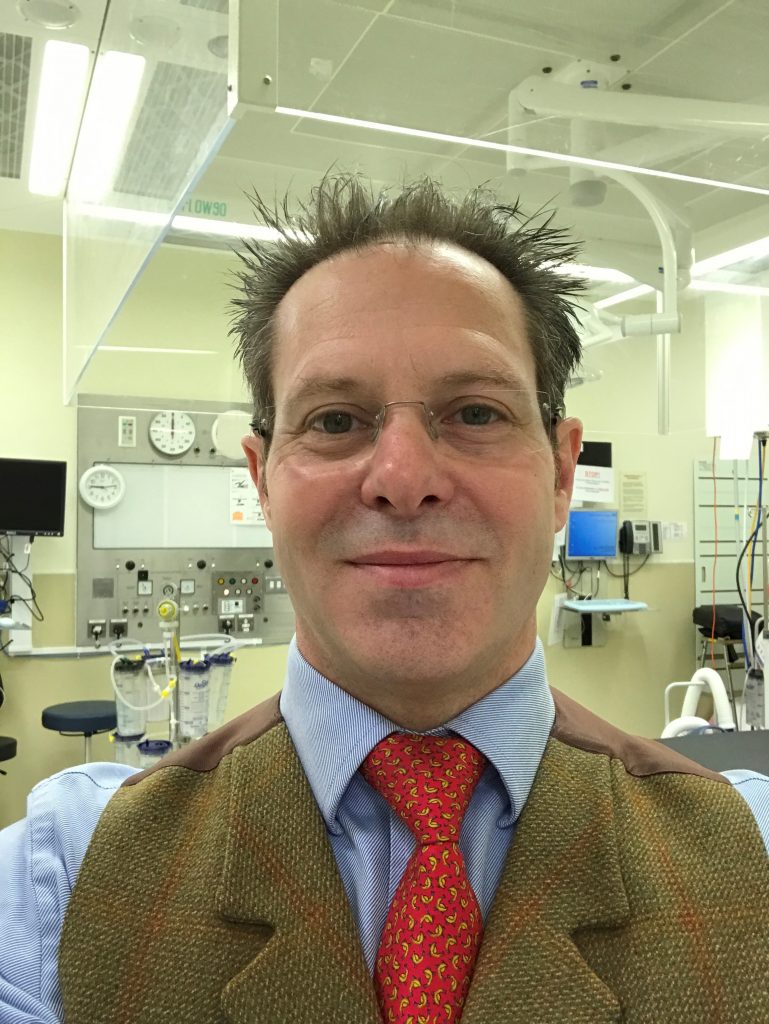
| By Dr Matthew Dolling, Intensive Care Consultant, Lincoln County Hospital: “As the morning shift began I watched the nurses gathering to put on their protective equipment (PPE) in a little room next to the door into the Intensive Care Unit at Lincoln County Hospital. In more normal times this room is an office but instead it now serves as the PPE station before entry into the COVID area. There is lively chatter and laughing. The nurses are a wide range of ages, a mixture of people who have returned from elsewhere in the NHS to a discipline they have known before, young less experienced nurses, and longstanding veterans of intensive care. But the happy atmosphere hides a silent undertow of anxiety. Many of these nurses are worried about COVID. They watch the news and see harrowing images from elsewhere in the world. The reports from hot zones affect them just as much as they do everyone else, if not more. They have loved ones who they worry about, and are concerned they may infect or may be infected, and they worry about themselves. The patients they are about to care for are very sick. They do not want what is happening to their patients to happen to them or their families. These nurses are on the front line. They are not military, they are not soldiers but putting their disquiet aside they don their protective equipment and enter the infected area without complaint. This silent bravery is being enacted all across the country every day. Every nurse puts their personal concern aside and enters the battle as if it were just another day. Conditions on the unit are very difficult. The combination of masks, gowns, goggles and gloves make communication difficult. The environment is noisy. The ungainly dress means that they feel hot, sweaty and uncomfortable. As the nurses hand over, the nightshift file out looking exhausted, their faces marked and sore from wearing the tight fitting masks. Their homes and sleep beckon as they trudge wearily to their cars. Many will be back to do it all again in a matter of hours. Their exhaustion is both physical and emotional. Caring for the COVID infected patients is very demanding. They are fragile, they have no visitors and the nurses become the natural surrogate for family to them so they are not alone. Some patients will not get better. Some will die in spite of exceptional medical interventions. Caring for patients on intensive care ordinarily can involve levels of complexity that do not exist elsewhere in a hospital. Managing to do this whilst wearing stifling protective clothing is much harder and yet the nursing staff manage it without complaint. As I write this, Lincoln’s ICU is not that busy with COVID yet. There is a hope that in spite of a lot of preparation, in some way Lincolnshire will escape the worst of this epidemic, but beyond that hope, there is an acceptance that the worst is probably still to come. When it does, the front line, these brave nurses, are already dug in. Much praise has been lauded on the NHS in this crisis. The nurses on the intensive care units in Lincoln and Boston deserve it, and so much more. It is imperative that everyone follows the advice we have been given by the Government at this time. There are a lot of very unwell people with this disease. We need to keep everyone safe and well as far as possible. We want as few deaths as possible and as few patients as possible needing these nurses to care for them.” |




Leave a Reply
You must be logged in to post a comment.